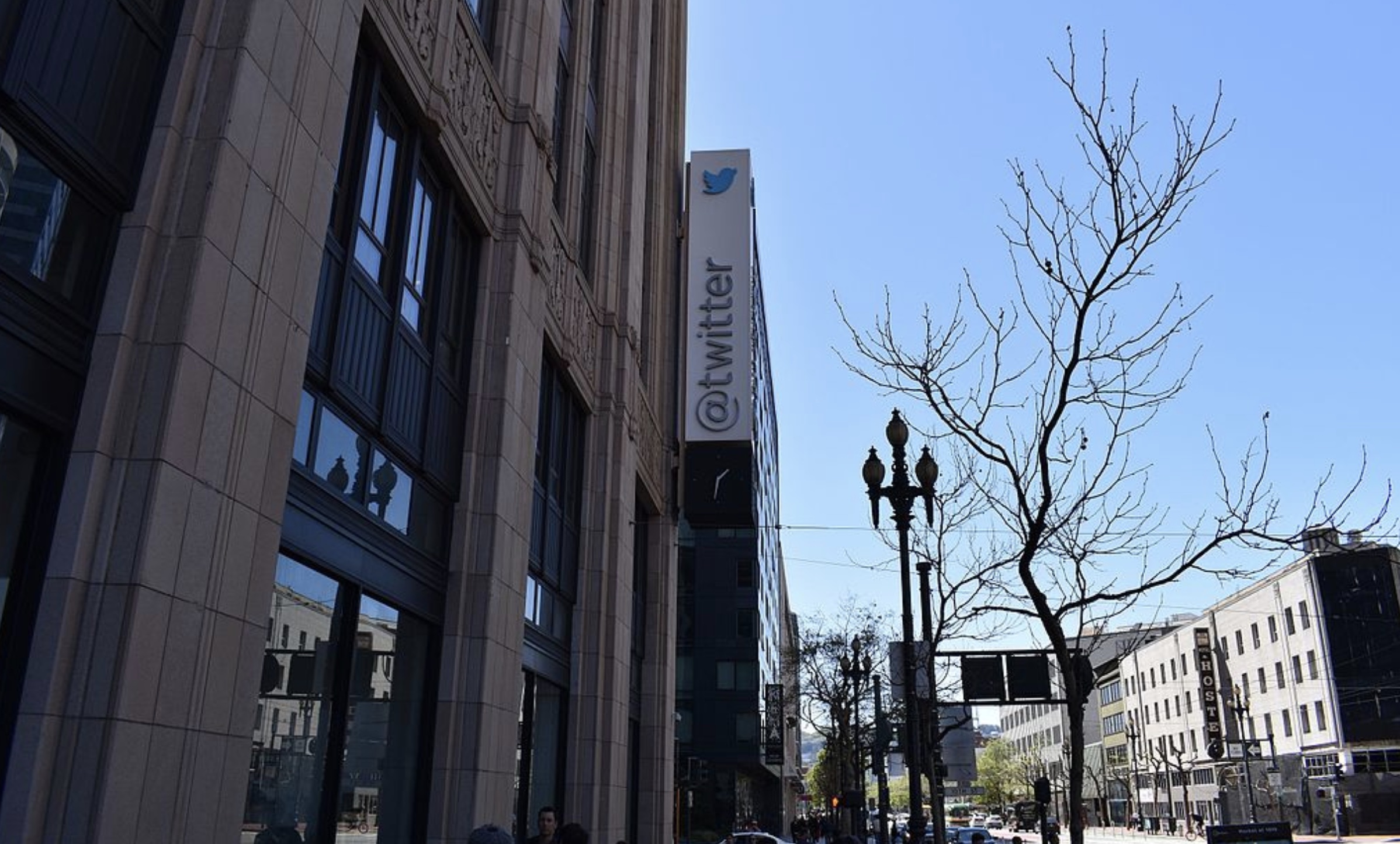

News
Over 80% of Twitter accounts are likely bots: Former FBI security specialist
Amidst the ongoing legal jabs from both Twitter and Elon Musk’s legal teams, it becomes pretty easy to lose the narrative. But while media coverage would likely give the impression that Musk is simply trying to weasel out of a $44 billion deal, the two parties’ conflict is actually based on a key issue: Twitter bots.
Twitter has maintained that less than 5% of its users are spam or fake accounts, even in its filings to the US Securities and Exchange Commission (SEC). Musk has scoffed at this estimate as the Tesla CEO believes that the number of bots on the social media platform is far higher. An estimate from Dan Woods, the Global Head of Intelligence at F5 and a former FBI special agent specializing in cybersecurity, suggests that Musk’s hunch is spot-on.
In a post on F5’s official website, Woods, who also worked for the CIA as a technical operations officer specializing in cyber operations, estimated that over 80% of Twitter’s accounts are actually bots. Woods was able to come to this conclusion after analyzing the social media platform and its countermeasures against automated accounts.
“When I consider the volume and velocity of automation we’re seeing today, the sophistication of bots that a given set of incentives is likely to attract, and the relative lack of countermeasures I saw in my own research, I can only come to one conclusion: In all likelihood, more than 80% of Twitter accounts are actually bots. This, of course, is my opinion,” Woods wrote.
The former FBI agent noted that bots are generally designed to accomplish a goal. In Twitter’s case, a key goal is to gain followers. More followers mean that an account becomes more influential, which could potentially be a security risk. What’s interesting is that there’s a means to get bots for Twitter, with countless entities offering Twitter accounts, followers, likes, and retweets for a fee. Some are even offered in the dark or deep web.
For research purposes, Woods tried these services on a Twitter account he created. And sure enough, they do work. The former FBI agent paid less than $1,000, but the account has now gained almost 100,000 followers. Woods even tried posting straight gibberish and paying a fee to have his followers retweet it — and they did. With this experience in mind, Woods took his tests further, and the results were pretty damning for Twitter’s anti-bot measures.
“I began to wonder how easy it would be to create a Twitter account using automation. I am not a programmer, but I researched automation frameworks on YouTube and Stack Overflow. Turns out, it’s easy.
“Taking my testing to the next level, over a weekend, I wrote a script that automatically creates Twitter accounts. My rather unsophisticated script was not blocked by any countermeasures. I didn’t try to change my IP address or user agent or do anything to conceal my activities. If it’s that easy for a person with limited skills, imagine how easy it is for an organization of highly skilled, motivated individuals,” Woods wrote.
It should be noted that Woods highlighted that bots are not a Twitter-only issue. Pretty much all social media platforms suffer from them. Objectively, however, it seems like Tesla CEO Elon Musk was right on target when he called out Twitter’s bot estimate. The social media platform may also have some explaining to do, especially as its own filings may very well be proven inaccurate.
Musk has commented on Woods’ findings on Twitter, joking that the price for 100,000 followers is actually not that bad.
The former FBI special agent’s full post can be accessed here.
Don’t hesitate to contact us with news tips. Just send a message to simon@teslarati.com to give us a heads up.
News
Tesla begins Robotaxi certification push in Arizona: report
Tesla seems serious about expanding its Robotaxi service to several states in the coming months.

Tesla has initiated discussions with Arizona transportation regulators to certify its driverless Robotaxi service in the state, as per a recent report from Bloomberg News. The move follows Tesla’s launch of its Robotaxi pilot program in Austin, Texas, as well as CEO Elon Musk’s recent comments about the service’s expansion in the Bay Area.
The Arizona Department of Transportation confirmed to Bloomberg that Tesla has reached out to begin the certification process for autonomous ride-sharing operations in the state. While details remain limited, the outreach suggests that Tesla is serious about expanding its driverless Robotaxi service to several territories in the coming months.
The Arizona development comes as Tesla prepares to expand its service area in Austin this weekend, as per CEO Elon Musk in a post on X. Musk also stated that Tesla is targeting the San Francisco Bay Area as its next major market, with a potential launch “in a month or two,” pending regulatory approvals.
Tesla first launched its autonomous ride-hailing program on June 22 in Austin with a small fleet of Model Y vehicles, accompanied by a Tesla employee in the passenger seat to monitor safety. While still classified as a test, Musk has said the program will expand to about 1,000 vehicles in the coming months. Tesla will later upgrade its Robotaxi fleet with the Cyercab, a two-seater that is designed without a steering wheel.
Sightings of Cybercab castings around the Giga Texas complex suggests that Tesla may be ramping the initial trial production of the self-driving two-seater. Tesla, for its part, has noted in the past that volume production of the Cybercab is expected to start sometime next year.
In California, Tesla has already applied for a transportation charter-party carrier permit from the state’s Public Utilities Commission. The company is reportedly taking a phased approach to operating in California, with the Robotaxi service starting with pre-arranged rides for employees in vehicles with safety drivers.
News
Tesla sets November 6 date for 2025 Annual Shareholder Meeting
The automaker announced the date on Thursday in a Form 8-K.

Tesla has scheduled its 2025 annual shareholder meeting for November 6, addressing investor concerns that the company was nearing a legal deadline to hold the event.
The automaker announced the date on Thursday in a Form 8-K submitted to the United States Securities and Exchange Commission (SEC). The company also listed a new proposal submission deadline of July 31 for items to be included in the proxy statement.
Tesla’s announcement followed calls from a group of 27 shareholders, including the leaders of large public pension funds, which urged Tesla’s board to formally set the meeting date, as noted in a report from The Wall Street Journal.
The group noted that under Texas law, where Tesla is now incorporated, companies must hold annual meetings within 13 months of the last one if requested by shareholders. Tesla’s previous annual shareholder meeting was held on June 13, 2024, which placed the July 13 deadline in focus.
Tesla originally stated in its 2024 annual report that it would file its proxy statement by the end of April. However, an amended filing on April 30 indicated that the Board of Directors had not yet finalized a meeting date, at least at the time.
The April filing also confirmed that Tesla’s board had formed a special committee to evaluate certain matters related to CEO Elon Musk’s compensation plan. Musk’s CEO performance award remains at the center of a lengthy legal dispute in Delaware, Tesla’s former state of incorporation.
Due to the aftermath of Musk’s legal dispute about his compensation plan in Delaware, he has not been paid for his work at Tesla for several years. Musk, for his part, has noted that he is more concerned about his voting stake in Tesla than his actual salary.
At last year’s annual meeting, TSLA shareholders voted to reapprove Elon Musk’s compensation plan and ratified Tesla’s decision to relocate its legal domicile from Delaware to Texas.
Elon Musk
Grok coming to Tesla vehicles next week “at the latest:” Elon Musk
Grok’s rollout to Tesla vehicles is expected to begin next week at the latest.

Elon Musk announced on Thursday that Grok, the large language model developed by his startup xAI, will soon be available in Tesla vehicles. Grok’s rollout to Tesla vehicles is expected to begin next week at the latest, further deepening the ties between the two Elon Musk-led companies.
Tesla–xAI synergy
Musk confirmed the news on X shortly after livestreaming the release of Grok 4, xAI’s latest large language model. “Grok is coming to Tesla vehicles very soon. Next week at the latest,” Musk wrote in a post on social media platform X.
During the livestream, Musk and several members of the xAI team highlighted several upgrades to Grok 4’s voice capabilities and performance metrics, positioning the LLM as competitive with top-tier models from OpenAI and Google.
The in-vehicle integration of Grok marks a new chapter in Tesla’s AI development. While Tesla has long relied on in-house systems for autonomous driving and energy optimization, Grok’s integration would introduce conversational AI directly into its vehicles’ user experience. This integration could potentially improve customer interaction inside Tesla vehicles.
xAI and Tesla’s collaborative footprint
Grok’s upcoming rollout to Tesla vehicles adds to a growing business relationship between Tesla and xAI. Earlier this year, Tesla disclosed that it generated $198.3 million in revenue from commercial, consulting, and support agreements with xAI, as noted in a report from Bloomberg News. A large portion of that amount, however, came from the sale of Megapack energy storage systems to the artificial intelligence startup.
In July 2023, Musk polled X users about whether Tesla should invest $5 billion in xAI. While no formal investment has been made so far, 68% of poll participants voted yes, and Musk has since stated that the idea would be discussed with Tesla’s board.
-

 Elon Musk1 week ago
Elon Musk1 week agoTesla investors will be shocked by Jim Cramer’s latest assessment
-

 Elon Musk3 days ago
Elon Musk3 days agoElon Musk confirms Grok 4 launch on July 9 with livestream event
-

 Elon Musk17 hours ago
Elon Musk17 hours agoxAI launches Grok 4 with new $300/month SuperGrok Heavy subscription
-

 News7 days ago
News7 days agoTesla Model 3 ranks as the safest new car in Europe for 2025, per Euro NCAP tests
-

 Elon Musk2 weeks ago
Elon Musk2 weeks agoA Tesla just delivered itself to a customer autonomously, Elon Musk confirms
-

 Elon Musk1 week ago
Elon Musk1 week agoxAI’s Memphis data center receives air permit despite community criticism
-

 Elon Musk2 weeks ago
Elon Musk2 weeks agoTesla’s Omead Afshar, known as Elon Musk’s right-hand man, leaves company: reports
-

 News2 weeks ago
News2 weeks agoXiaomi CEO congratulates Tesla on first FSD delivery: “We have to continue learning!”













